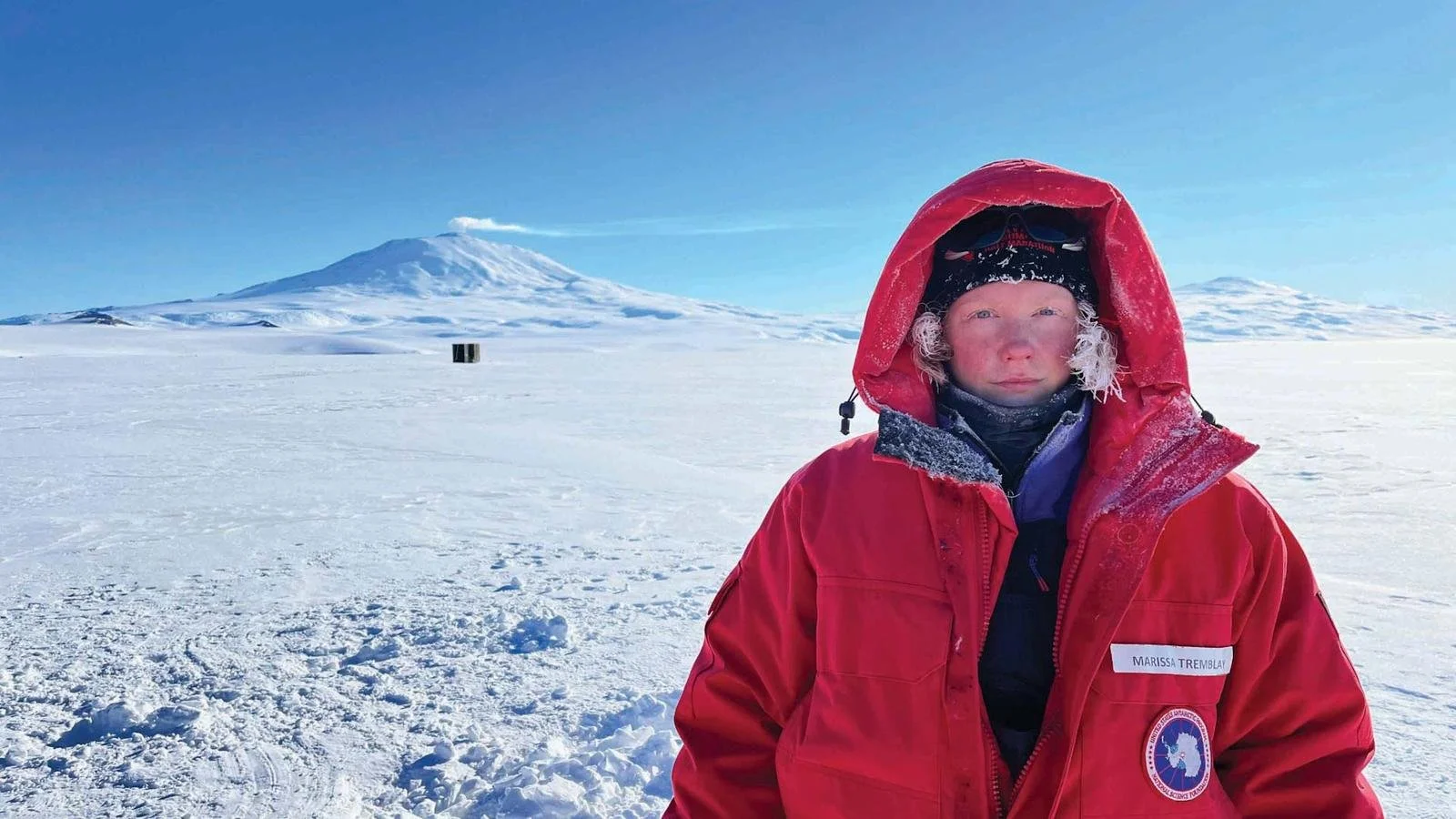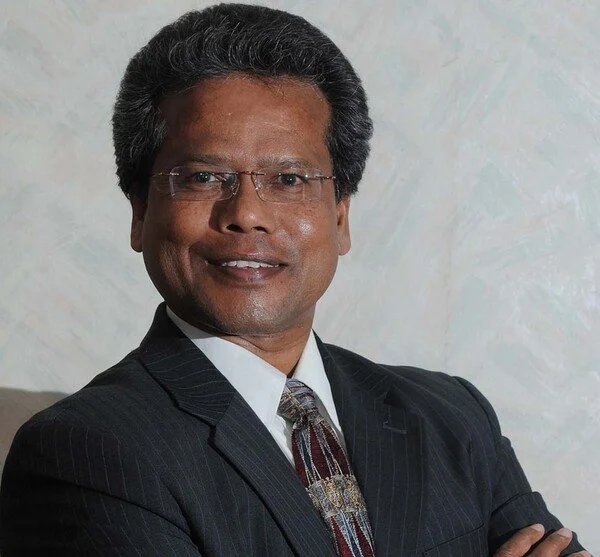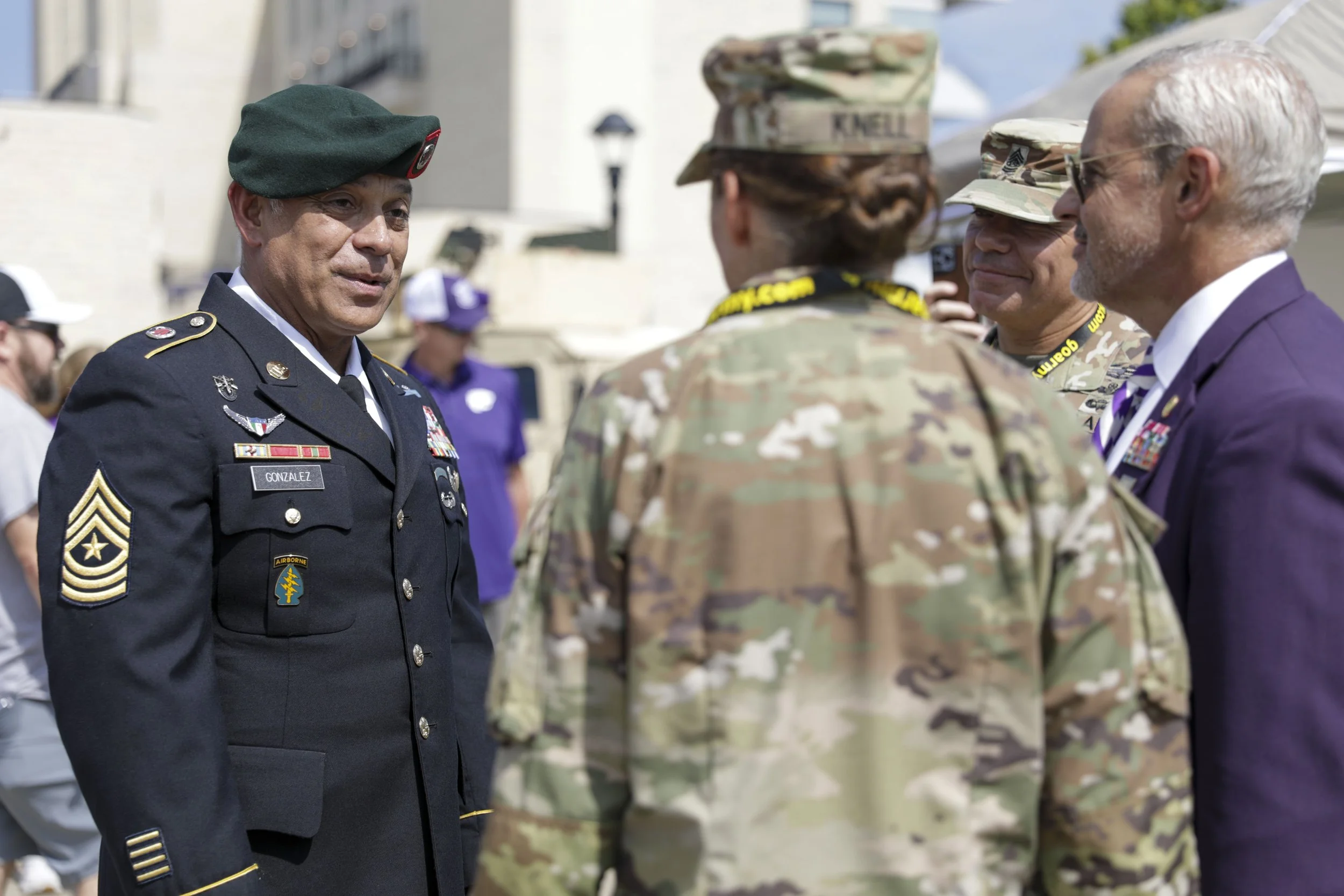Appreciation of Education Inspires Alumnus to Fund Endowed Professorship in Veterinary Dentistry
Dr. Raj Singh with his wife, Melissa, and their canine companions. (Photo courtesy of Raj Singh)
A clerical error nearly cost Dr. Raj Singh his spot in veterinary school.
Nearly four decades later, after building a successful veterinary practice in California, he reflects on how the education he received at Purdue University prepared him to pursue the career of his dreams, take giant leaps as a business owner, and develop a special interest in dentistry. A passion for this field of veterinary medicine motivated Dr. Singh and his wife, Melissa, to commit $1.5 million to establish an endowed professorship in dentistry at the College of Veterinary Medicine last fall.
Dr. Singh (PU BS ’86, biology; DVM ’90; MS ’91, veterinary physiology) enrolled at Purdue in 1982 intending to become a veterinarian. A Fort Wayne native, he’d grown up around animals his entire life. His mother’s family had a farm in Missouri with large animals and his own family kept pets — a dog, cat, guinea pig, and parakeet. But it was during a trip to India when he was 13 years old that he gained a deeper understanding of the human-animal bond.
“I spent about a month in India and my dad’s family had a dog there, an American Eskimo — kind of crazy in the heat of India,” Dr. Singh said. “I really bonded with that dog. I couldn’t speak the language of the people much, but I connected with Silky and developed a love for that type of relationship with animals.”
He began shadowing his family veterinarians, Drs. Jay Kumaran, Ed Nims, and Robert Ferguson (PU BS ’64, DVM ’68). When the time came to select a college, he was accepted by several out-of-state private schools, but the family’s financial situation made the cost of attending untenable.
“I knew it wasn’t going to work out for me to go to a private school,” Dr. Singh said. “Purdue had a great academic reputation and was an excellent in-state option that my dad strongly encouraged. He’s the one who said, ‘This is where you’re going.’ It was absolutely the right decision for me.”
At Purdue, he worked with a supportive advisor who helped him plan a course schedule to meet the prerequisites for the College of Veterinary Medicine as a junior, but he was not accepted. When he applied to the program during his senior year, he was surprised to be rejected again. He was told by the admissions director that his GPA for the required courses was not high enough. Not easily dissuaded, Dr. Singh relied on instincts he honed as a Purdue undergraduate to examine the situation.
“In biological sciences, I was trained to analyze records for clarity, consistency, and validity,” Dr. Singh said. “Scientific investigation was a big part of my Purdue education and shaped part of who I am. So, I took that information and went back and did the calculations myself — and I came up with a different number. Once the admissions director reviewed things, she realized there had been a mistake and I was placed on the waiting list.”
Dr. Singh had met the requirements and been accepted to the program. He just had to hope that another fellow in the cohort would drop out, which is how he ended up receiving a call from admissions on the Friday before classes started, letting him know he would begin his veterinary studies on that Monday. He actually was already on campus, starting a master’s degree in veterinary physiology in the College of Agriculture.
“I had to switch gears and ask my dad for $5,000 tuition and tell my professor that I wasn’t going to be able to commit full-time to the master’s program,” Dr. Singh said. “I still wanted to continue my master’s while I was in veterinary school. I started a dual degree master’s before it became an official program.”
Following graduation, Dr. Singh practiced veterinary medicine in the Bay Area for several years before he and Melissa became the owners of the Sunnyvale Veterinary Clinic in 2002. In 2016, they opened a feline-only practice nearby. In 2017, they opened a third practice, Oakridge Veterinary Clinic — this one closer to home in San Jose — where Dr. Singh still works. The couple sold all three practices in 2020.
In addition to treating patients at Oakridge, Dr. Singh is also chief of staff advisor for VetCor in the San Francisco Bay Area. He became a canine/feline diplomate with the American Board of Veterinary Practitioners in 2013 and joined ABVP’s board in 2019 as the canine/feline regent.
In all his endeavors, Dr. Singh evokes the standards of professionalism instilled in him by the teachers and mentors who stoked his passion for animal medicine. At Purdue, that included Dr. S. Kathleen Salisbury (PU MS ’84), now associate dean for academic affairs in the college and professor of small animal surgery.
“Dr. Salisbury set the standards of professionalism that I aspire to achieve every day,” Dr. Singh said. “She conveyed the necessity of ensuring you knew the details of every case you were working on. During rounds, she would ask very open ended questions about the particularities of a case which made you think and she also demonstrated communication that was supportive and considerate. Her approach to sharing feedback is one I use today when I mentor my associates and veterinary students.”
Dr. Singh said spending nine years as a student at Purdue had a big impact on his life as a professional. He’s always felt an obligation to recognize the individuals and institutions that influenced him and supported him along the way. Personally, that includes his parents, Mahesh and Julia Singh; his brother, Dave (PU EE ’88); his wife, Melissa; and his mentors, Drs. Kumaran, Nims, and Ferguson. He’s also grateful for the accessible, world-class education he received at Purdue.
“The people of Indiana made an investment in me,” Dr. Singh said. “I want to make the biggest impact I can to invest in the health and success of the Purdue community. I want to see the health of more animals improved through veterinary dentistry, specifically. A special interest in dentistry was the foundation of my economic success in veterinary medicine.”
Not only was dentistry foundational to Dr. Singh’s successful veterinary practice, he also believes it’s essential to overall animal health and well-being. While the field has evolved and more general practitioners are showing interest in dentistry, Dr. Singh says the profession still has a long way to go to make dentistry a cornerstone of animal care. “I hope by funding an endowed professorship in dentistry, students will graduate with the skills and knowledge to help patients with better oral health and by doing so, those graduates will see financial and professional success earlier in their careers,” Dr. Singh said. “I value the influences on my life that helped me succeed. Giving back is a way for me to improve the world as best I can to my abilities.”
This story appeared in the Purdue Veterinary Medicine 2023 summer report.










